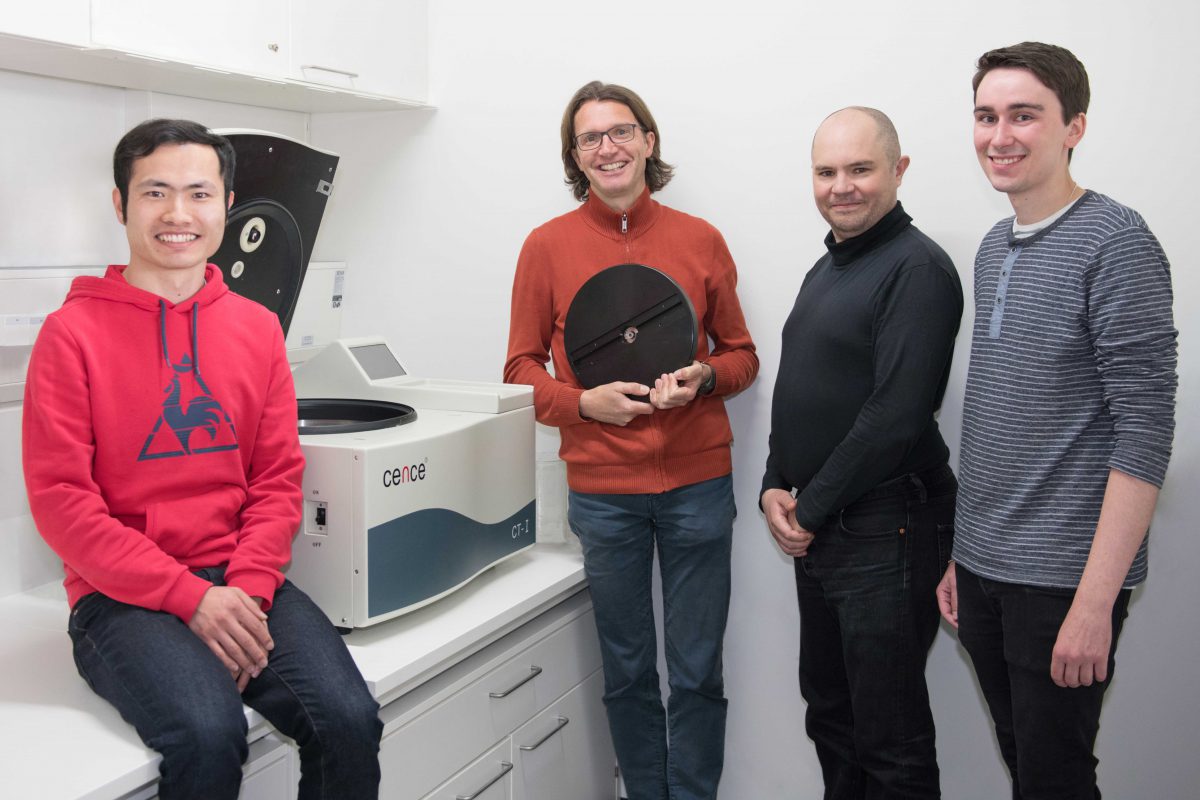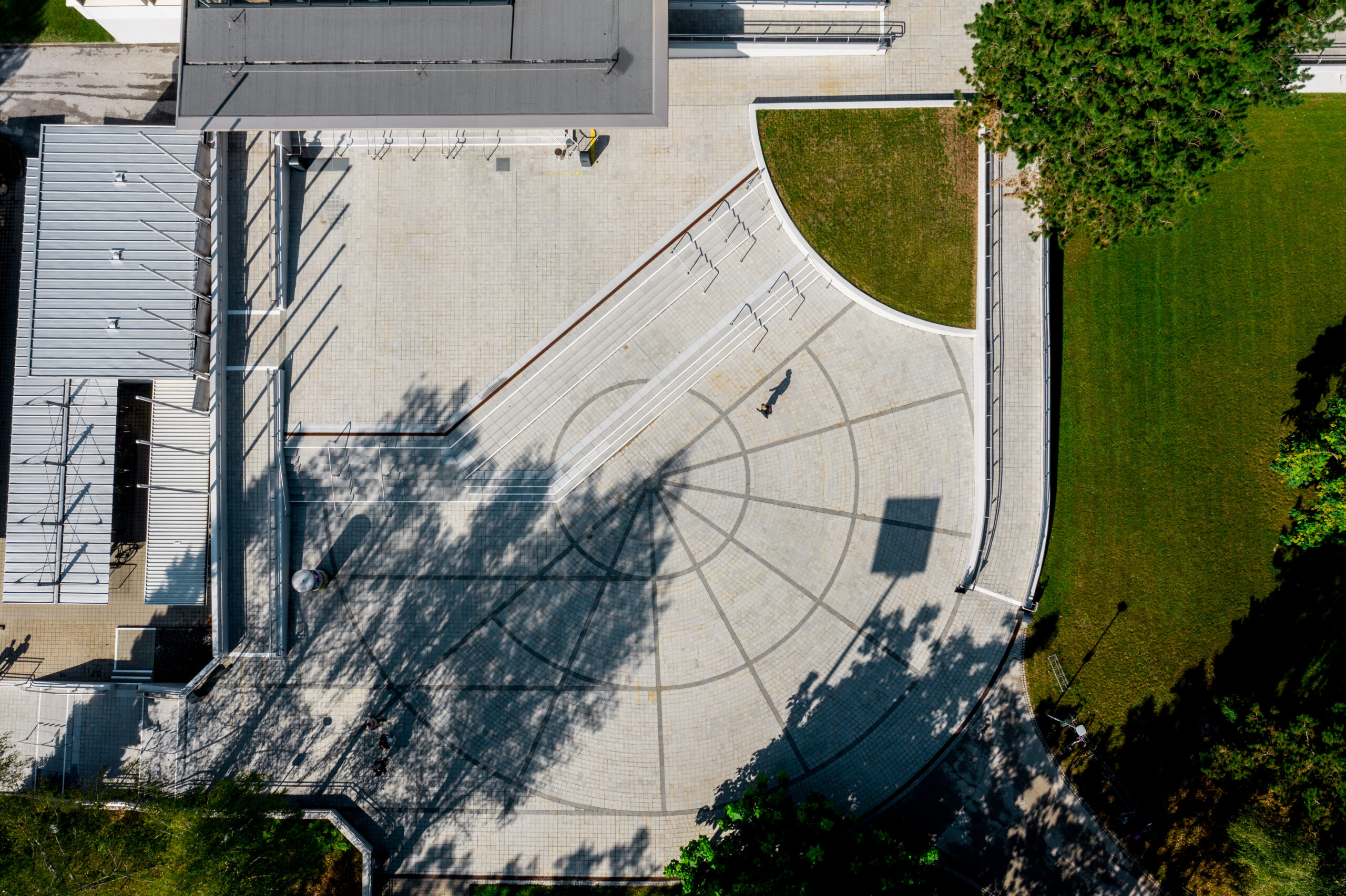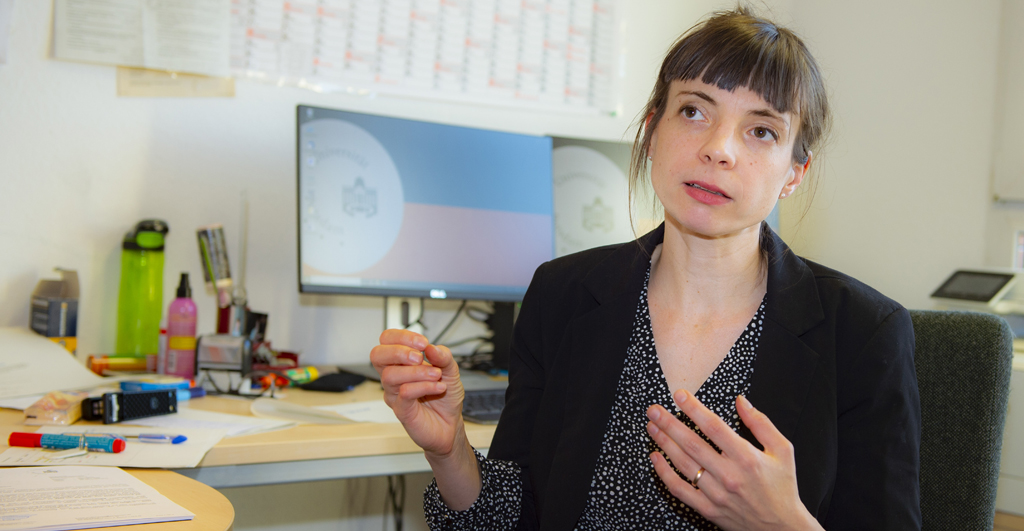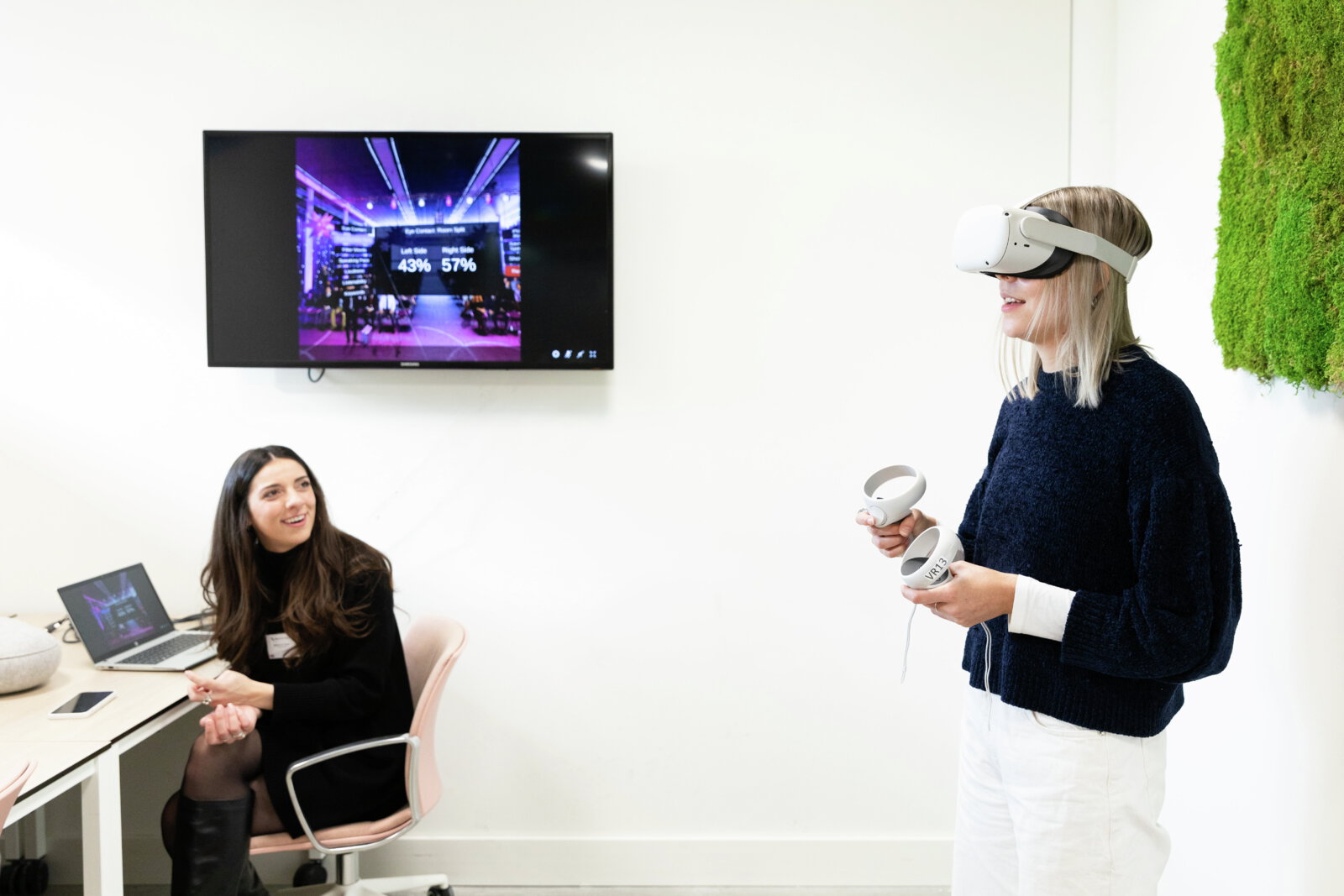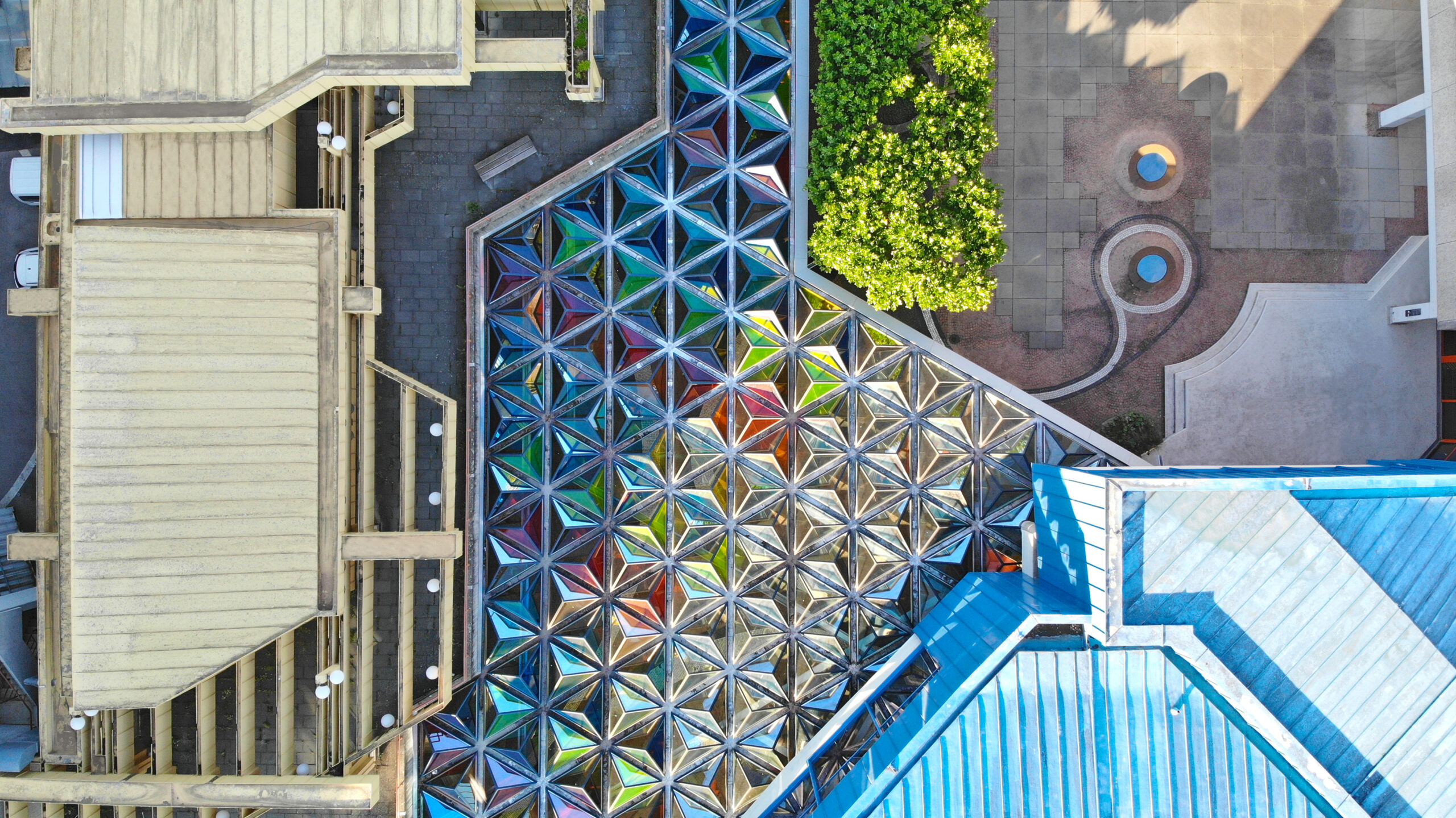The laboratory at the Institute of Systematic Botany and Ecology at Ulm University houses a unique device. Germany’s sole centrifuge of the type ‘Chinatron’ not only enables scientists to study how plants react to stress induced by drought in times of climate change. The device also helps with the development of ‘bionic branches’, which could be paving the way for new pumping and cooling systems.
Biologists such as Steven Jansen, head of a research group at the Institute of Systematic Botany and Ecology, have been researching water transport in plants for decades. Thanks to factors such as modern imaging procedures and analytical techniques, the anatomy of the tree trunk is for the most part already understood. However, engineers have not yet succeeded in developing a bionic branch that convincingly imitates the water transport as it is observed in nature. An artificial system such as this would help to develop pumps that could rid contaminated soil of chemicals. Applications in biomedicine and cooling technology are other potential outcomes.
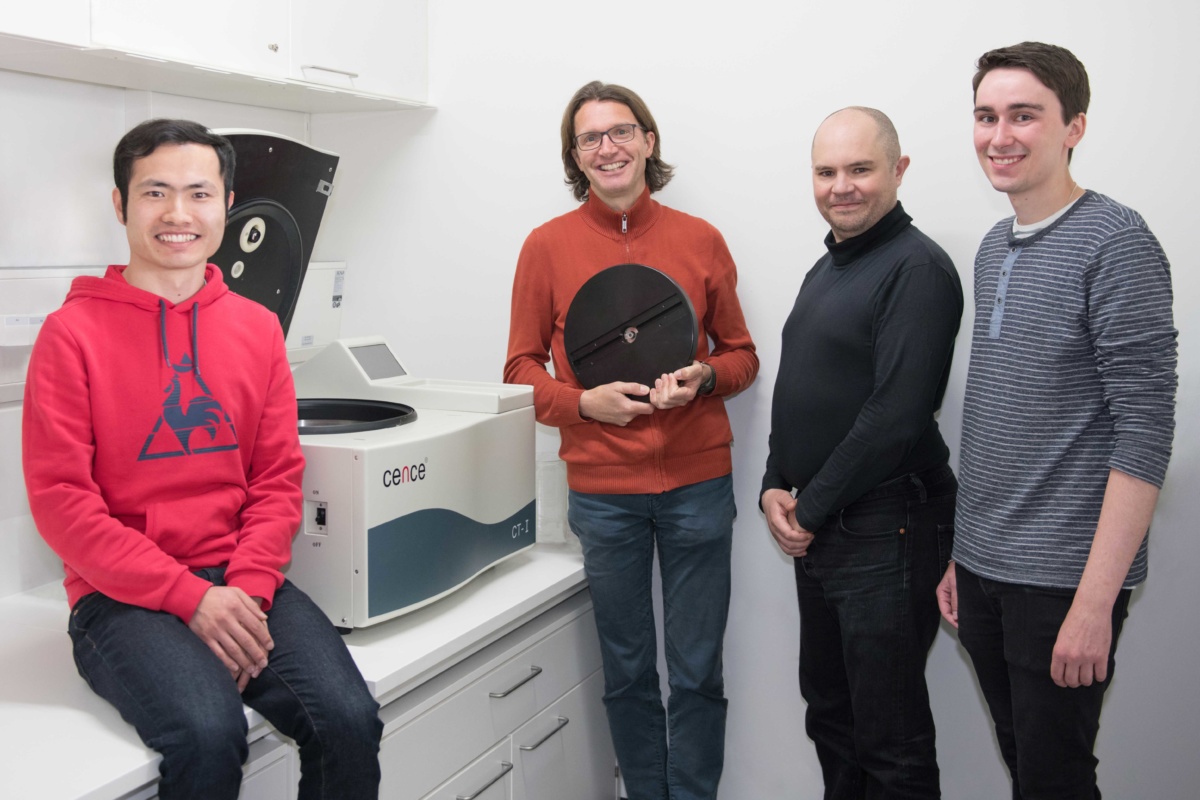
Scientists investigate effects of climate change in tree trunks
Researchers like Jansen would benefit as well: The ‘bionic tree trunk’ would allow them to explore the water transport in plants and the formation of dangerous gas bubbles in even greater depth – an important topic, especially in the face of climate change. During periods of dryness, the sap in the vascular tissue (xylem) of the trunk is under immense soil-moisture tension as the tree attempts to extract water from the ground. In extreme droughts, the water column can get interrupted, causing gas bubbles to appear and blocking any further flow of water. Such ’embolisms’ can mean death for a tree. The tendency to develop such blockages varies greatly between plant species – and can be analysed within minutes in the new Chinatron.
Contact: Prof. Steven Jansen, Systematic Botany and Ecology, steven.jansen@uni-ulm.de, phone: +49 731 50-23320

